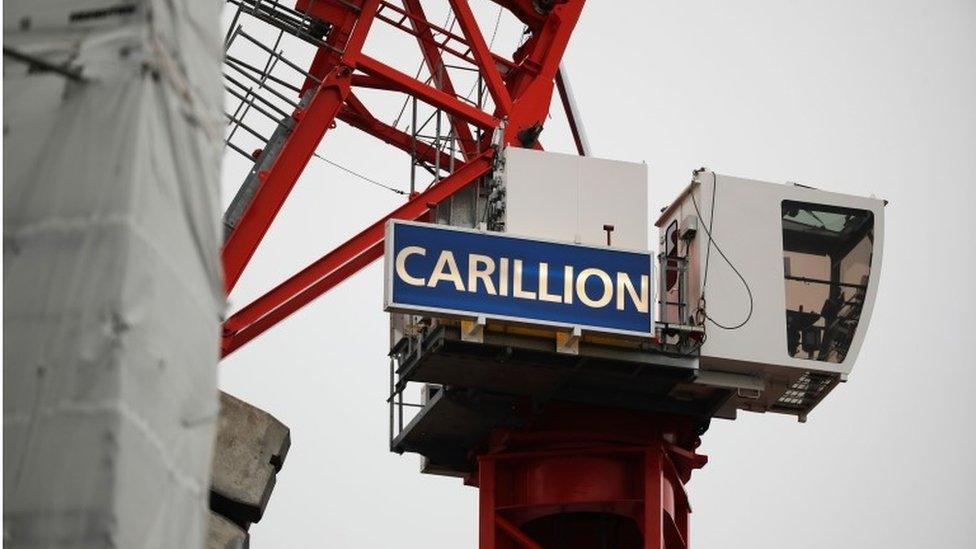Carillion: The company entrenched in public life
- Published
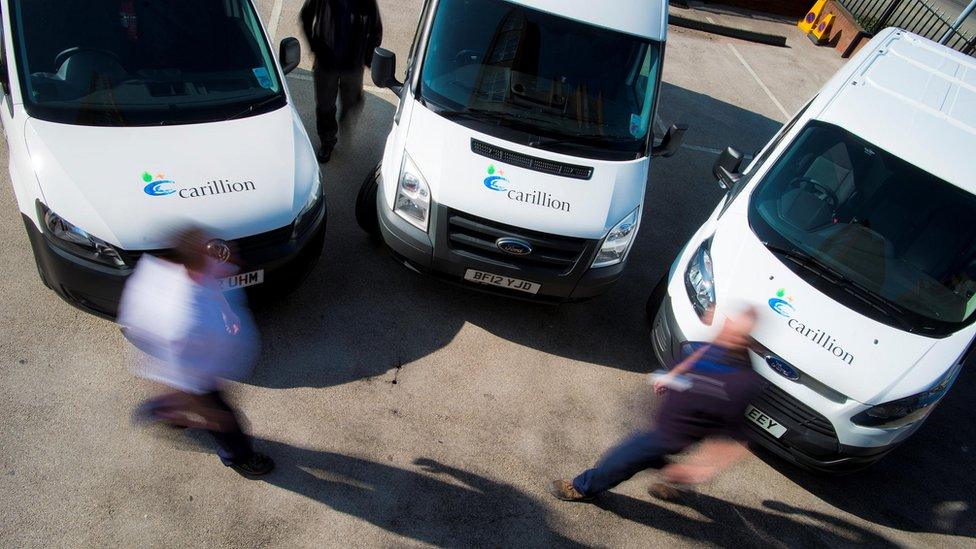
Carillion is usually described as a construction company, its name often seen emblazoned across major projects. One of its contracts was with HS2, but it also supplied children in Oxfordshire with school dinners, maintained prison grounds in Cambridgeshire and set up a solar farm in West Sussex.
Describing itself as an "integrated support services business", it held about 450 governmental contracts, spanning the Departments of Education, Justice, Defence and Transport.
In the UK its projects included the Royal Opera House, the Library of Birmingham, the Tate Modern, and the hoop-shaped building of GCHQ. It also manages the Smart Motorways traffic control system.
So just how far did its interests spread? How big a part did it play in UK public life?
Libraries in London

The running of the libraries in Croydon, Ealing, Harrow and Hounslow was outsourced in 2012 - first to a company called John Laing Integrated Services, which swiftly sold it on to Carillion.
Under the brand "Cultural Community Solutions", Carillion bosses said: "We want to transform and re-energise the concept of the library.
"Our mission is to rethink and reinvent local public libraries to make them relevant and self-sustaining."
But Hounslow terminated its contract last summer, and Croydon announced on Monday that it would be taking its library services back in-house.
Army housing
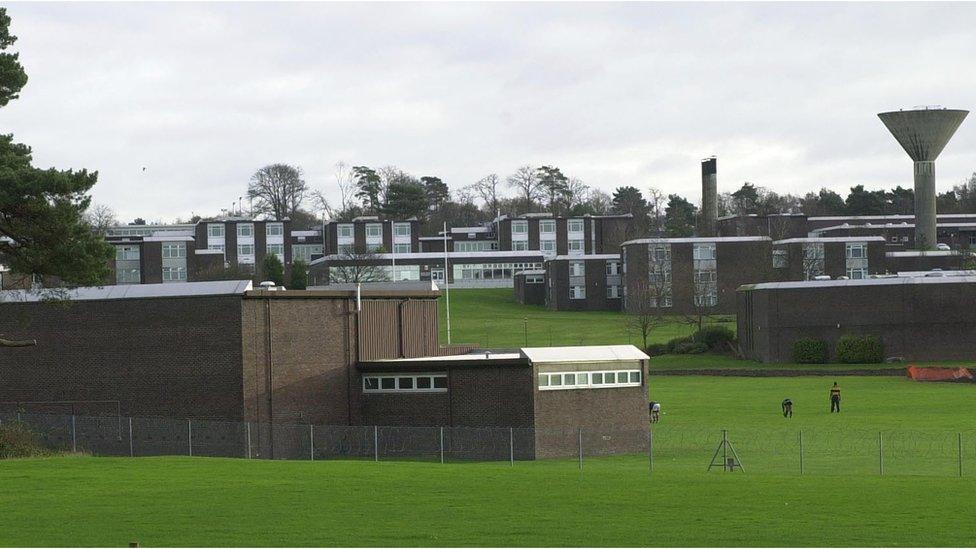
Carillion is the parent company of CarillionAmey, which maintains about 50,000 homes across the United Kingdom for the Ministry of Defence, operating between £700m and £1bn worth of contracts.
Following the announcement of the liquidation, CarillionAmey said: "There is a considerable amount of press coverage regarding Carillion's current financial position, however, the impact on CarillionAmey's operations remains limited and we will continue to deliver services as normal."
A spokesman for the MoD said the announcement would have no direct impact on defence or the services provided to the Armed Forces and their families.
"Housing will continue to be serviced, catering facilities provided and buildings and offices cleaned," he added.
In 2016, a report by the public accounts committee described CarillionAmey's performance for the MoD as "totally unacceptable", leaving families in "dirty houses with broken appliances... without hot water or heating".

What's at risk?

GCHQ's headquarters was one of the projects Carillion was involved in
Dieter Helm, Professor of Economic Policy at Oxford University, said: "You've got the Ministry of Defence, you've got the Department of Education, you've got the Department of Health, you've got the Department of Transport - all these different departments are striking contracts with this company.
"Who takes a look at the totality of this, at whether it really adds up and whether the company is competent as a whole to deliver all of these public services which have been put into this one single basket?"
While ministers have promised that all public services will be protected following the demise of Carillion, Meg Hillier, chair of the Commons Public Accounts Committee, said the government had "serious questions to answer about its role in allowing taxpayers' exposure to escalate to this point".
The committee is responsible for overseeing government expenditure, and to make sure it is effective and honest.
Ms Hillier said: "Carillion's collapse raises grave concerns about jobs, the delivery of public services and the way government conducts its business. The Public Accounts Committee has previously warned of the risks when contractors, paid from the public purse, become too big to fail."
Where did it go wrong for Carillion?
Carillion collapse: What next?
A spokesperson for the Local Government Association said those councils affected by the collapse of Carillion had been "monitoring the situation closely and are implementing contingency plans to keep services running as normally as possible".
"Councils are also working with other public sector partners in their local area to be ready for any wider knock-on effects of Carillion's failure."
Professor Simon Collinson, an expert in regional business at the University of Birmingham, says small firms will be the most affected.
"As suppliers, they rely on big construction firms like Carillion for much of their income. They'll be last in the queue for payment from any of the value salvaged from the mess, leading some to collapse and many to sack their own employees.
"Rather than just look to government we should be taking a hard look at the corporate governance structures in place at the firm; these should have changed the strategy and structure well before we got to this disappointing and damaging end point."

Prisons
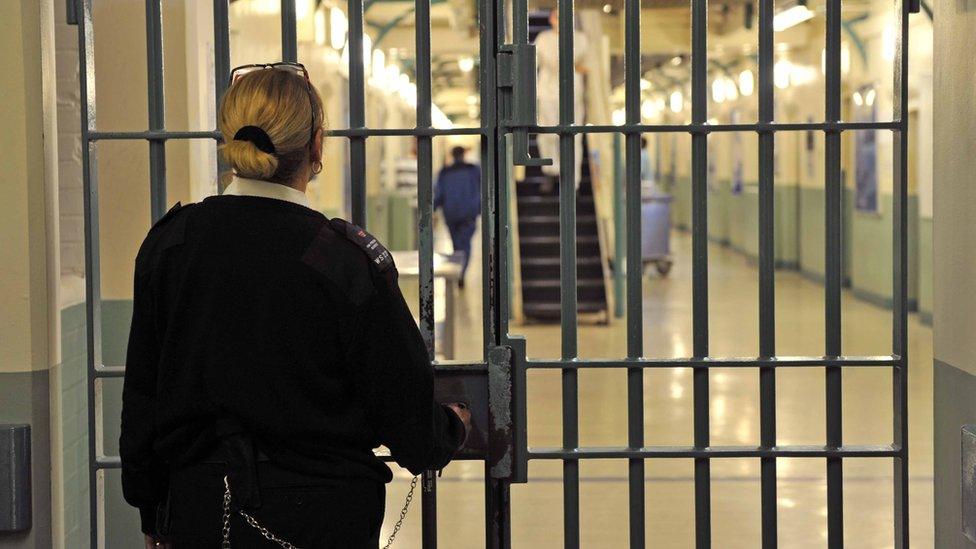
Carillion had the maintenance contract for Wormwood Scrubs
Carillion maintained approximately half of the UK's prisons and Young Offender Institutions, including Wormwood Scrubs, Pentonville and Feltham. Its responsibilities included cleaning, landscaping and catering.
The company was widely criticised by Independent Monitoring Boards, external across the country, which described Pentonville as "unsafe and inhumane", Winchester as "unable to function properly" and Wandsworth as "struggling to maintain basic standards".
Since the company's collapse, the Prison Officers Association (POA) said that the contracting out of services and maintenance in prisons was "a recipe for disaster", but their concerns were ignored.
General Secretary of the POA Steve Gillan said: "We need to know the contingency plans to keep our prisons operational. During the time Carillion had this contract the level of essential maintenance and work that is outstanding has spiralled out of control... due diligence was not undertaken.
"Today we face another real crisis due to poor management and privatisation".
Hospitals
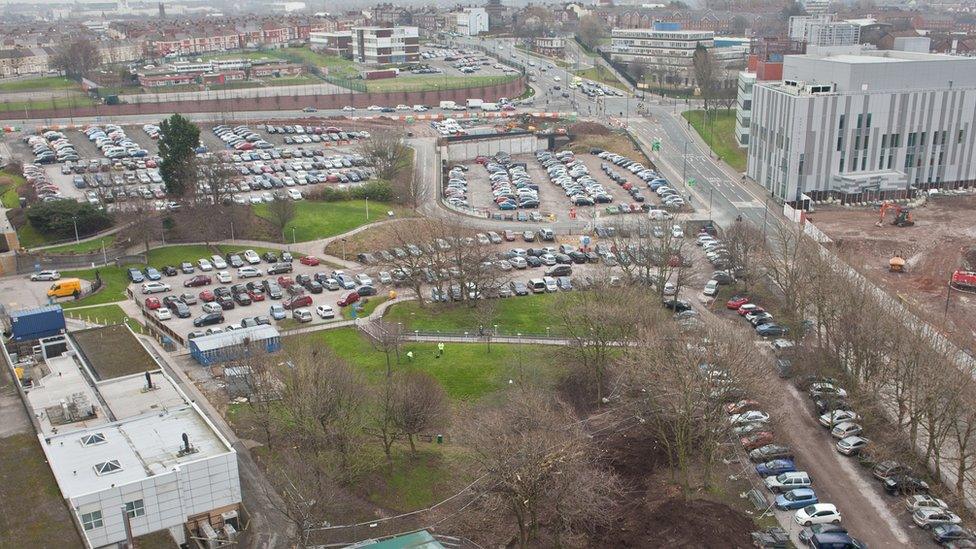
The £335m Royal Liverpool Hospital is at least a year behind schedule
Carillion is behind two new hospitals - the Royal Liverpool and Midland Metropolitan.
The £335m Royal Liverpool Hospital is at least a year behind schedule. It was due to be completed in March 2017, but the completion date has been repeatedly pushed back amid reports of cracks in the building.
The £350m Midland Metropolitan Hospital in Sandwell was originally scheduled to open in October 2018, but difficulties with the heating, lighting and ventilation systems forced a delay of the launch date to spring 2019.
The company also ran all the catering, cleaning, laundry and car parking at the James Cook Hospital in Middlesbrough.
Schools
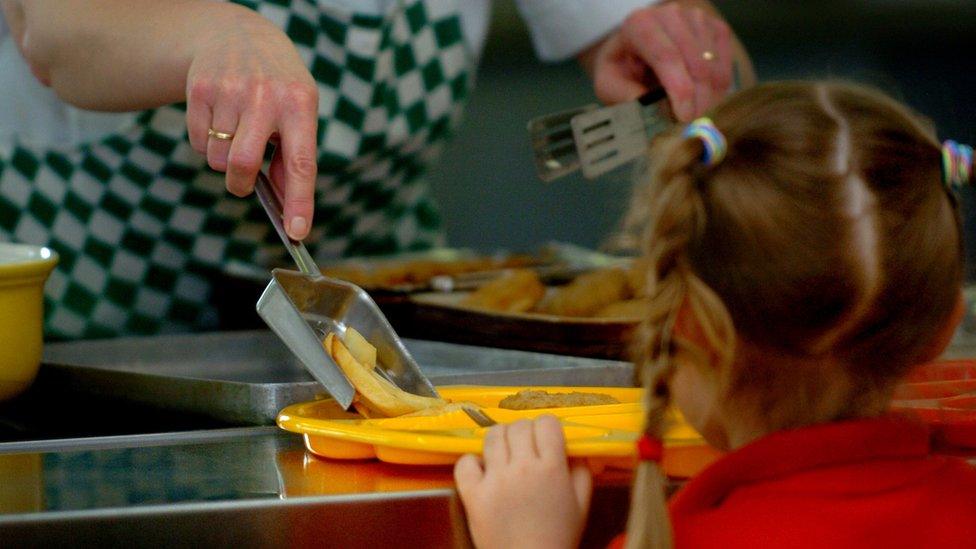
Oxfordshire County Council has promised school pupils will continue to receive school dinners
The company was responsible for delivering school dinners to 30,000 pupils a day in 218 schools.
Firefighters have been put on standby to deliver school meals in Oxfordshire after the county council said it would take over services provided by Carillion.
A Department for Education spokesperson said: "Our priority is to ensure schools can continue to operate as usual.
"We have planned extensively for this and have been working with local authorities and academy trusts since before Christmas to make sure contingency plans are in place. We are continuing to offer support to schools help minimise disruption for pupils through our designated advice service."
- Published15 January 2018
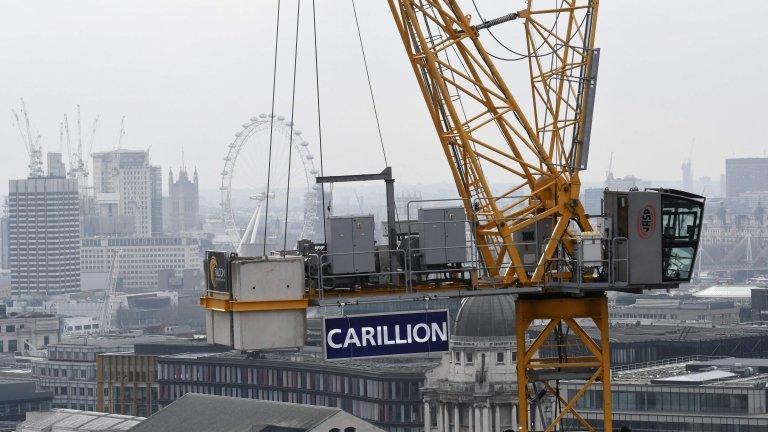
- Published17 July 2017
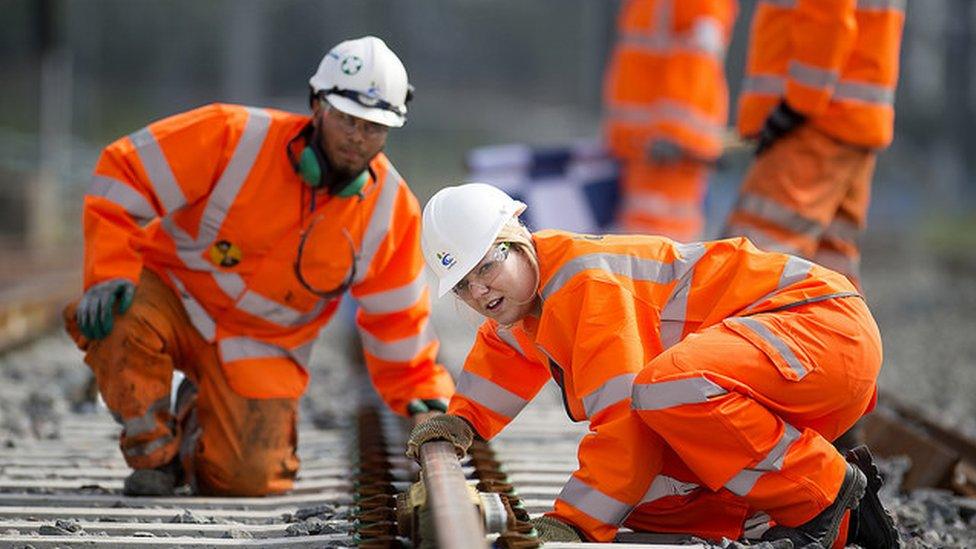
- Published15 January 2018
